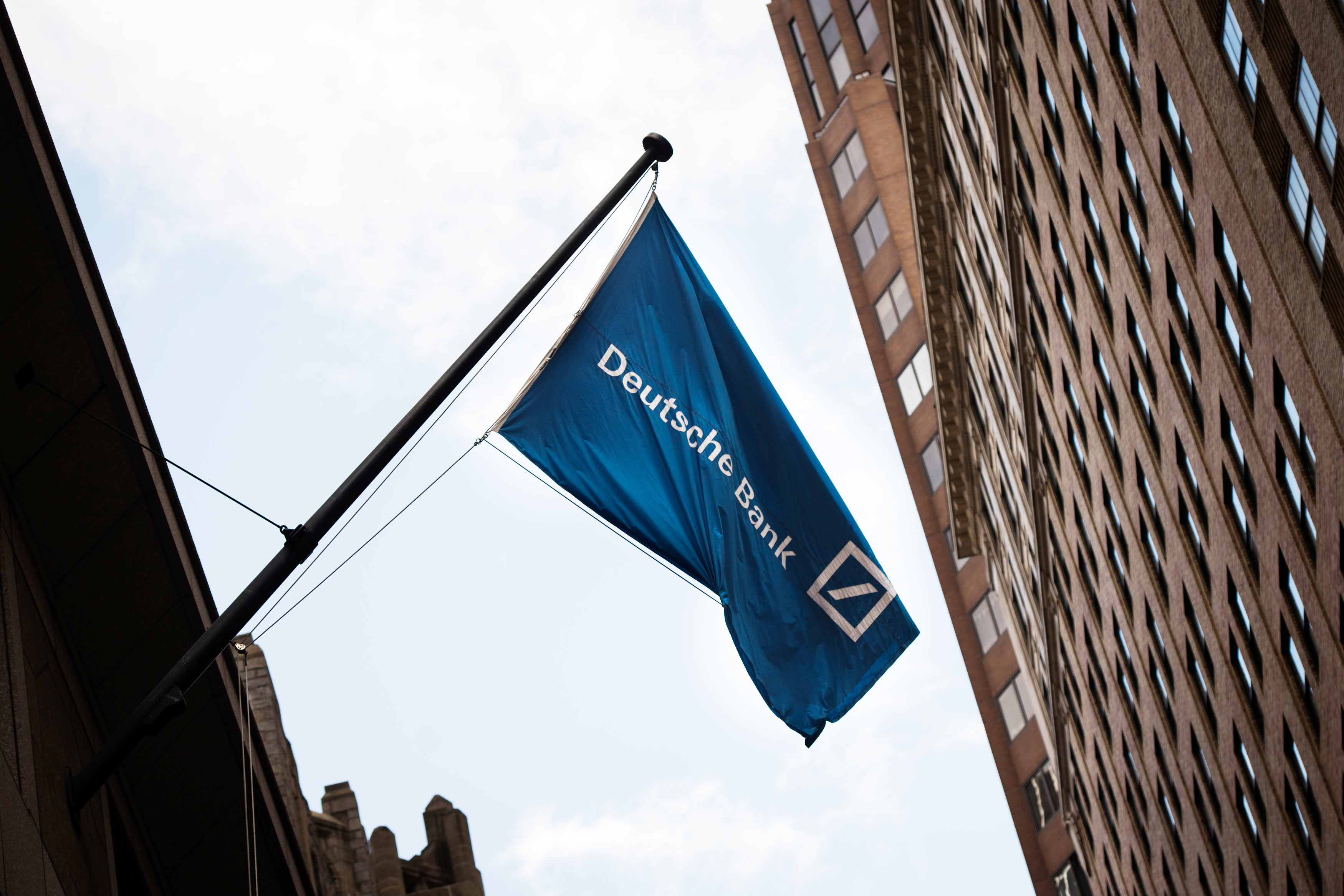This post was originally published on this site

A Deutsche Bank AG flag flies outside the company’s office on Wall Street in New York.
Mark Kauzlarich | Bloomberg | Getty Images
Financial stocks came under pressure on Monday amid a report that a number of global banks moved allegedly illicit funds over the past two decades despite warnings from U.S. officials.
Shares of Deutsche Bank dropped nearly 8%, while JPMorgan fell almost 5% in premarket trading. Goldman Sachs, Citigroup and Bank of New York Mellon all traded at least 2.5% lower. The sell-off was triggered by a new investigation by BuzzFeed and the International Consortium of Investigative Journalists (ICIJ) that found the banks’ internal compliance officers flagged a total of more than $2 trillion in transactions between 1999 and 2017 as possible money laundering or other criminal activity. The report cited confidential documents submitted by banks to the U.S. government.
These leaked suspicious activity reports do not necessarily indicate wrongdoing, and they were just a tiny fraction of the reports filed with U.S. Department of Treasury’s Financial Crimes Enforcement Network, the news report said.
Deutsche Bank appears to have facilitated $1.3 trillion of suspicious money in the files, while JPMorgan disclosed $514 billion, the report found. Other banks mentioned in the investigation include HSBC Holdings, Standard Chartered and Bank of New York Mellon. HSBC fell nearly 7% in premarket trading, hitting a 25-year low.
In a statement to CNBC, HSBC said “all of the information provided by the ICIJ is historical and predates the conclusion of our Deferred Prosecution Agreement (DPA) in 2017.”
“Starting in 2012, HSBC embarked on a multi-year journey to overhaul its ability to combat financial crime across more than 60 jurisdictions,” an HSBC spokesperson said. “At the end of 2017, the Justice Department, having received all of the Monitor’s reports, determined that HSBC met all of its obligations under the DPA. HSBC is a much safer institution than it was in 2012.”
Meanwhile, Deutsche Bank told CNBC that “we have invested almost $1 billion in improved controls, trainings and operational processes, and have increased our anti-financial crime team to over 1,500 people.”
JPMorgan said it reports suspicious activity to the government “so that law enforcement can combat financial crime, and have thousands of people and hundreds of millions of dollars dedicated to this important work.”
“We have played a leadership role in anti-money laundering reform that will modernize how the government and law enforcement combat money laundering, terrorism financing and other financial crimes,” the bank told CNBC.
—CNBC’s Wilfred Frost contributed reporting
Subscribe to CNBC PRO for exclusive insights and analysis, and live business day programming from around the world.


